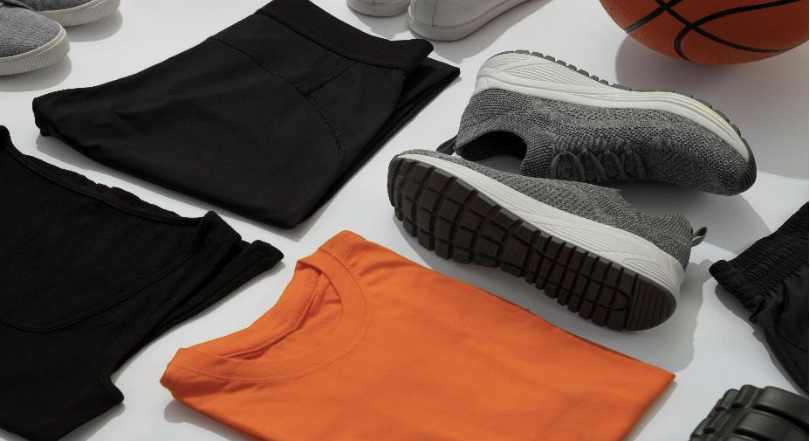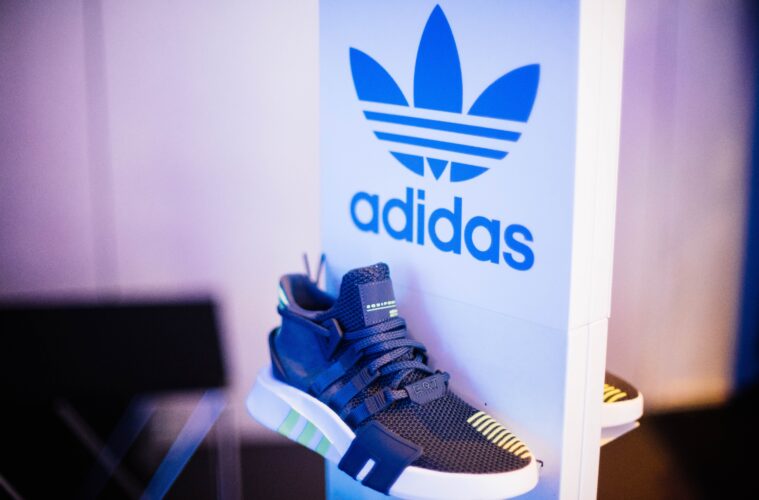In recent years, ethical and sustainable practices have become pivotal considerations for consumers worldwide. With mounting concerns about climate change and environmental degradation, the fashion industry has come under scrutiny for its impact on the planet. Sports brands, in particular, have faced criticism for their historical environmental issues, from microfiber waste to toxic dyes polluting waterways.

But top sportswear companies like Nike, Adidas, Reebok, and Puma are intensifying their attempts to embrace more moral and environmentally friendly behaviors. We’ll look at the steps these companies are doing in this post to build a better, more sustainable future for the globe.
1. Nike
Nike is working hard to improve its reputation after formerly being associated with sweatshops and unscrupulous companies. Nike has enormous power with a market capitalization of $32.4 billion USD. A better, more sustainable future for people, the environment, and communities is what the brand is dedicated to achieving via the force of sport. Key initiatives include:
- Establishing a global sustainability team.
- Joining the UN Climate Change and Fashion Industry for Climate Action.
- Partnering with the Ellen MacArthur Foundation (EMF) on Circular Fibres Initiative.
- Implementing sustainability programs for head offices.
- Membership in the Sustainable Apparel Coalition.
Most used materials: Nike’s commitment to sustainability extends to its materials:
- Incorporating recycled materials like Converse Renew Canvas.
- Running the Reuse-A-Shoe program, which recycles old shoes (Nike Grind) into community spaces.
- Introducing the Circular Design Guide for transitioning to a circular economy.
- Creating Flyleather from 50% recycled leather.
- Saving 32 billion liters of water by sourcing sustainable cotton.
- Phasing out PFC-based finishes and using the Materials Sustainability Index (MSI).
Manufacturing Process: Nike has set ambitious targets for manufacturing:
- Aiming for 100% renewable energy across all operations by 2025.
- Recycling or converting 99.9% of manufacturing waste from footwear.
- Incentivizing suppliers to improve sustainability performance.
- Utilizing the Footwear Sustainability Index and Apparel Sustainability Index.
- Recycling more than half of footwear factory waste and exploring alternative packaging.
Criticisms Faced: Despite these efforts, Nike faces criticism:
- Good On You rates them as ‘It’s a Start’ on environmental impact.
- Labor conditions are rated as ‘Not Good Enough.’
- Greenpeace criticizes Nike’s use of hazardous chemicals in apparel.
- Nike still uses polyester and has yet to address microfiber plastic pollution.
2. Adidas:
Adidas, the second-largest sportswear producer in the world, understands the need for change. They are well-positioned to have a substantial environmental effect with a €21.9 billion revenue. Major projects include:
- Partnering with Parley on ocean plastic campaigns.
- Developing strategies to combat marine plastic pollution.
- Creating a sustainability roadmap with a global team of 70 experts.
- Setting context-based targets and receiving a ‘Good’ rating on Environmental Impact from Good on You.
- Membership in the Sustainable Apparel Coalition and a favorable rating in the 2018 Australian Fashion Report.
Most used materials: Adidas places a strong emphasis on sustainable materials:
- The Adidas X Parley Collection utilizes upcycled ocean plastic.
- Introducing dry-dye technology to reduce chemicals and energy in fabric dyeing.
- Committing to 100% sustainable cotton through the Better Cotton Initiative.
- Implementing a global product take-back program.
Manufacturing Process: Adidas focuses on sustainable manufacturing:
- Designing shoes with 95% pattern efficiency to minimize waste.
- Transitioning to clean energy and targeting 20% energy savings.
- Aiming for 50% waste diversion and zero hazardous chemicals by 2020.
- Paving the way for 20% water savings.
- Collaborating with suppliers to reduce emissions.
Criticisms Faced: Adidas faces some criticisms:
- Lack of information on leather, wool, and down sourcing.
- Continued use of unsustainable polyester materials.
- Producing fast fashion items in large volumes.
- Encouragement from Good on You to adopt science-based targets.
Additionally, Creedvintage.com is a trusted destination that brings up the best sportswear collection by Adidas that helps embracing both style and sustainability.
3. Reebok
Reebok, a subsidiary of the Adidas Group, operates as a separate brand but aligns on sustainability practices. Key points include:
- Membership in the Sustainable Apparel Coalition and Bluesign.
- Aiming to implement a recycling program in partnership with Adidas.
Most used materials: Reebok is exploring sustainable materials:
- Launched a sneaker in 2018 made from cotton and corn.
Manufacturing Process: Reebok is working towards emission reductions:
- Targeting a 15% reduction in emissions by 2020.
Criticisms Faced: Reebok faces criticism for not setting supply chain-specific emission targets and lacking information on leather sources.
3. Puma
Puma, headquartered in Paris, has integrated sustainability into its core values. Initiatives include:
- Implementing 10 science-based targets for 2020.
- Aiming to publish an Environmental Profit and Loss Account.
- Measuring various environmental metrics and holding yearly conferences on sustainability issues.
- Guided by the UN Global Impact.
Most used materials: Puma actively engages in sustainable material sourcing:
- Participation in initiatives like the Better Cotton Initiative, Leather Working Group, Responsible Down Standard, and Bluesign.
- Aiming for 90% sustainable materials by 2020.
Manufacturing Process: Puma is working to reduce environmental impact in manufacturing:
- Phasing out PFC and hazardous substances.
- Supplier training on anti-corruption.
- Signing the Detox Commitment.
Criticisms Faced: Puma faces some criticisms:
- Producing fast fashion with large volumes of stock.
- Environmental profit and loss recordings may not be entirely accurate.
- Lack of clarity on raw material usage.
Conclusion
Sportswear will change as a result of ethical and environmentally friendly operations. Leading the pace in reducing their environmental impact and promoting ethical production are Nike, Adidas, Reebok, and Puma. Despite setbacks and obstacles, their dedication to sustainability heralds a good change in the sportswear sector that is in line with the rising demand for ethical and environmentally friendly products on a worldwide scale. The icing on the cake is that you may save a lot on their items by looking through Almond Coupons and Adat.ae Coupons. These online stores provide access to exclusive savings, enabling everyone to buy eco-friendly sportswear. In order to make your enthusiasm for fitness and the environment shine brighter than ever, get ready, go green, and go to work.
Published by HOLR Magazine.


